Monolith at Automotive Testing USA Europe 2023
Learn How SaaS AI Software Is Used by Automotive Engineers
Novi, Michigan
October 24, 25, 26, 2023
Booth 15036
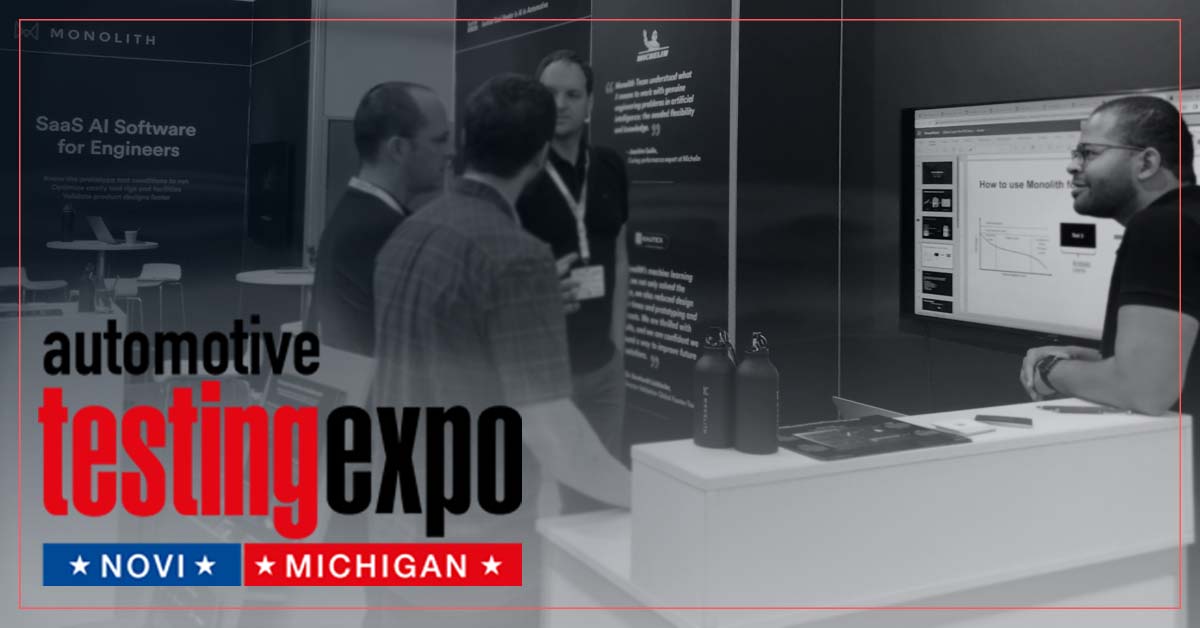
Presentation: Reduce Battery Testing by 70%: Use AI to Overcome 3 Critical EV Challenges
Day 2: Wednesday, October 25 - afternoon session
In the fast-changing EV landscape, battery testing poses a major obstacle to timely EV model rollouts. Dr. Richard Ahfeld, CEO of Monolith, aims to tackle this challenge by sharing innovative solutions for testing and validating products. Market demand and competition intensify the need for improved battery range and charging efficiency.
Meet our team
Have technical demos, chats & consultations at our booth
About Automotive Testing Expo:
Automotive Testing Expo is the world’s leading international expo for every aspect of automotive testing, development and validation technologies, taking place every year in Detroit, Shanghai and Stuttgart. In Europe, as elsewhere, it is the leading event for the technologies and services in ADAS and autonomous vehicle testing, electric and hybrid powertrain testing, battery and range testing, EMI and NVH test and analysis and the full spectrum of test and validation technologies for full-vehicle, component and systems development.
About Monolith
We enable engineers all over the world to:
- Understand physically intractable problems
- Fully explore multiple virtual test scenarios
- Reduce costs and time investment throughout the whole R&D cycle
- Increase confidence in predictions & recommendations on which tests to run next
New Feature
Next Test Recommender (NTR): AI-Powered Test Plan Optimisation
Learn how our AI software's latest feature enables users to train and assess machine learning models. It offers valuable recommendations for optimal test conditions to apply in the next round of testing. NTR assesses previously gathered data to suggest the most effective new tests to conduct.
Four ways to use AI to cut validation costs
Build shorter test plans, create fewer prototypes, find errors faster, and validate designs more quickly using AI-based self-learning models.
1. Automatically detect faulty sensors
To avoid downstream issues, your engineers must tediously inspect test data for errors. One failed sensor or wiring malfunction can render thousands of dollars in testing useless.
- Prepare your data for optimal AI performance
- Catch bad data now so you avoid re-engineering later
- Find outliers in your test data fast with intuitive visualisation
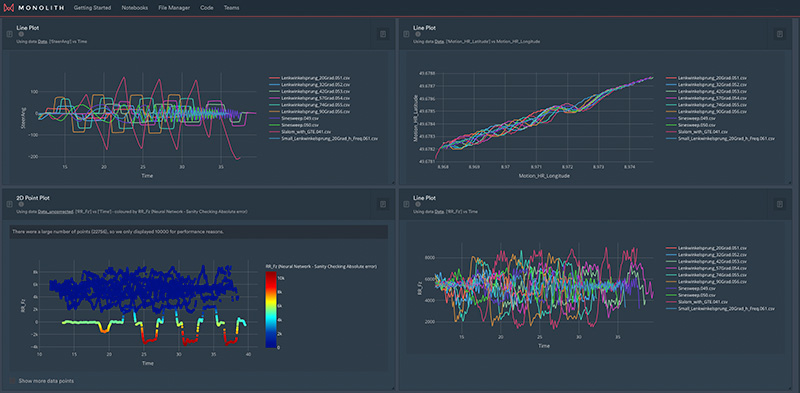
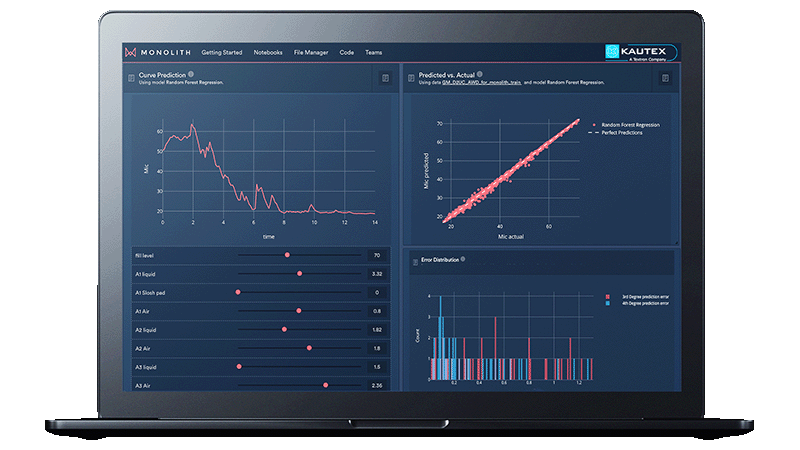
2. Predict the critical tests to run
Test too much and you waste time confirming what you already know. Test too little and risk missing performance issues. Schedule, quality and your career depend on finding the balance.
- Run the most important tests and skip the rest
- Optimize resources spent on costly test rigs and facilities
- Validate your designs faster with fewer prototype iterations
3. Determine the cause of system failure
Product design issues during validation risk launch delays and lost market share. Pressure on engineers is high to identify critical parameters causing failure, quickly analyze the root cause, and predict how the product will perform in changing conditions.
- Predict what design changes will most likely fix the failure
- Identify components causing sub-optimal performance
- Avoid long delays and uncertainty in the validation process
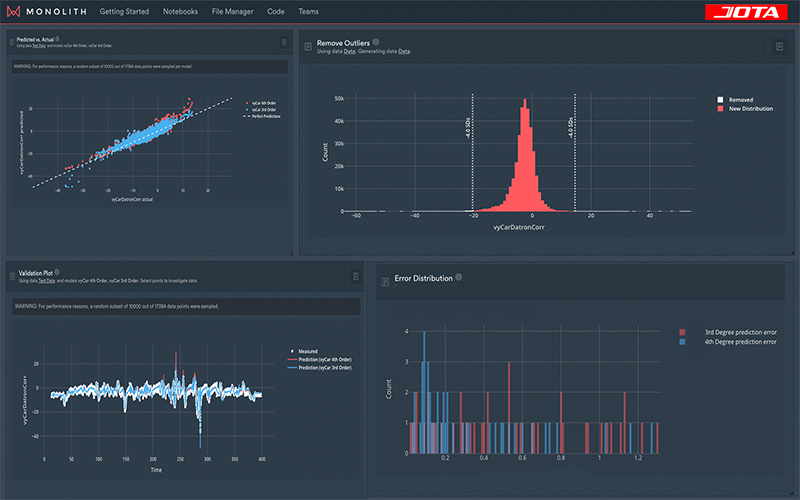
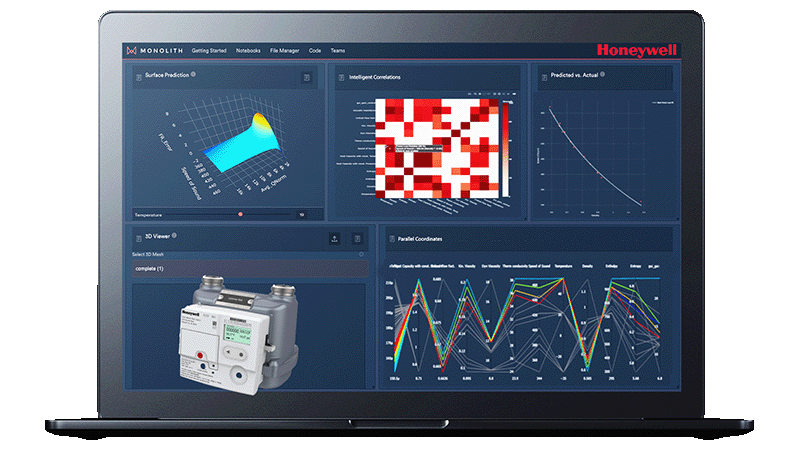
4. Calibrate for thousands of conditions
Designing highly complex, non-linear systems that must meet stringent performance standards is challenging. Predicting which combination of inputs will deliver the optimal output, in all operating conditions, is next to impossible.
- Calibrate complex dynamic systems
- Ensure your system performs to spec in all conditions
- Find best-fit values across 1000's of inputs and conditions
Trusted by








